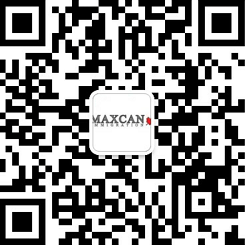

Proof of Funds for Permanent Residence Application under Express Entry
Posted on 31/12/2019
Proof of funds is one of those key details related to your Express Entry profile that you need to keep updated and ensure that you meet the required level of funds.
Proof of funds ensures you have sufficient funds to settle in Canada when you first arrive as a skilled foreign worker in order to meet the minimum requirements of the following programs:
- Federal Skilled Worker Program
- Federal Skilled Trades Program
Canadian immigration authorities will ask for written proof of funds when you receive an Invitation to Apply (ITA).
You do NOT need proof of funds if:
- You are applying under the Canadian Experience Class (CEC) program, OR
- You are authorized to work in Canada (you have a work permit) and have received a valid job offer from an eligible Canadian employer, including you are applying under the Federal Skilled Worker Program or the Federal Skilled Trades Program. We’ll explain what a valid job offer is further below.
How much funds are required?
The table below shows the amount of money you need to provide written proof for in order to establish proof of funds. Remember that this means cash, or assets that can be easily accessed and sold in order to have liquid funds that can be used to pay for your living expenses in Canada.
Readily available funds means things like:
- Cash balances in bank accounts in your or your spouses name – as long as you can provide proof that you are joint owners or that you have legal access to your spouse’s bank accounts.
- Cash balances or liquid (easily sold) investments in an investment account in your name or your spouse’s name – as long as you can prove you are joint owners or that you have access to your spouse’s accounts.
The following do not normally qualify as readily available funds
- Real estate holdings
- Funds held in overseas accounts may not be accepted. It is always a good idea to transfer such funds to an account held with a Canadian financial institution or the Canadian subsidiary/branch of a foreign financial institution.
Your official written proof of funds must consist of:
- Letters printed on the financial institution’s official company letterhead, and which
- Include your contact information (email, phone, address)
- Include your full name (and your spouse’s if jointly owned)
- List any outstanding debts with the financial institution – such as credit card balances or any loans you have with them
- Include the following for each and every bank account and/or investment account:
-
- Account number
- Date each account was opened
- Current balance of each account
- Average balance of each account for the past 6 months
- Please note that the funds must be available both on the date you apply for permanent residence and on the date if and when Canadian immigration authorities issue you your PR visa. Play it safe. Make sure you have a reasonable surplus of available funds over and above the required level, if at all possible.
When you arrive in Canada, you can bring cash or financial instruments like bonds, stocks, bank drafts, money orders, etc. with you, but if the total is over CAN $10,000 you must declare the amount to immigration authorities or risk being fined or even having the funds seized.
The amounts in this table are updated annually as they are calculated as 50% of the Low-Income-Cut-Off (LICO) total.
| Number of Family Members | Amount required in CAN $ |
| 1 | $12,669 |
| 2 | $15,772 |
| 3 | $19,390 |
| 4 | $23,542 |
| 5 | $26,701 |
| 6 | $30,114 |
| 7 | $33,528 |
| For each additional family member | $ 3,414 |
So Who Exactly is Exempt from Proof of Funds?
As a skilled worker you are sometimes eligible for more than 1 program, and immigration authorities generally use the following method to determine which program to place your application under:
- Canadian Experience Class (CEC) if you meet the requirements, if not, then
- Federal Skilled Worker (FSW) program, if not, then
- Federal Skilled Trades (FST) program
Under which program you receive an ITA is important because:
- If you receive an ITA under CEC you do NOT need proof of funds
- If you receive an ITA under FSW you need proof of funds UNLESS:
- You have a valid job offer:
- made by only one employer in the case of FSW
- for continuous, full-time, paid work
- for at least 1 year of work after authorities issue your PR visa
- for jobs that are NOC skill type 0, or NOC skill level A or B
- If you receive an ITA under FTW you need proof of funds UNLESS:
- You have a valid job offer:
- Made by up to 2 employers
- For continuous, full-time, paid work
- In a skilled trades occupation (NOC codes starting with: 72, 73, 82, 92, as well as 632 and 633)
Furthermore, to be exempt from proof of funds, the following conditions must also hold:
- For FSW applicants, your employer must obtain a new LMIA for your valid job offer naming you and your position, OR
- You must be already working in Canada at an NOC 0, A, or B occupation with a work permit that was issued based on an LMIA, AND
- You are working for the same employer as listed on the previously issued work permit
- Your work permit authorizes you to legally work in Canada both on the date you apply for PR status and on the date your PR visa is issued
- Your current employer has offered you a job that extends for at least 1 year from the date of your PR visa, OR
- Your work permit is for an LMIA-exempt occupation that is NOC 0, A, or B
- For FTW applicants, you have a valid job offer and are exempt from proof of funds, if you are working at a skilled trades job with a work permit based on an LMIA, AND
- You are working for the same employer listed on your work permit
- Your work permit authorizes you to legally work in Canada both on the date you apply for PR status and on the date your PR visa is issued
- Your current employer has offered you a job (if you are accepted for a PR visa) that has the same first 3 digits of its NOC code as that of your current job. OR
- You have a work permit for a skilled trades occupation that is listed as LMIA-exempt
So, remember to check under what skilled worker program you are being selected by Express Entry. You can do that by doing the following:
- Sign into your Express Entry account
- Go to View the applications you submitted section
- Click on Check Full Application Status
- Scroll down to What am I Eligible For
- Besides each of the listed programs, look under details – it will say met or not met
- If it says met, you are eligible for that program
And finally, try to check up on the amounts of required funds for skilled workers at least once a year to ensure you will have sufficient available funds when you receive an ITA.
Posted in Tips and tagged Express Entry, Express Entry and Skilled Workers, Skilled Worker




